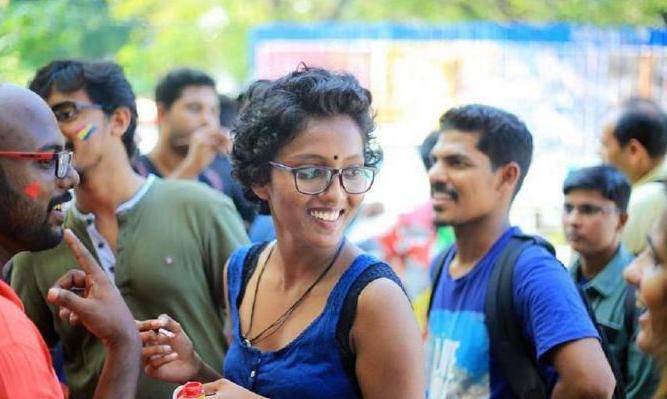Indian LGBT+ rights group launches landmark bid to ban conversion therapy after tragic death of bisexual woman

Chinnu Sulfikar, was found dead in Goa on May 12. (Chinnu Sulficker/ Facebook)
Following the suicide of a young bisexual woman in India, an LGBT+ rights group has filed a petition to the Kerala High Court seeking to ban the practice of conversion therapy.
Queerala, an organisation based in Kerala for the safety of LGBT+ people, and Raghav, a board member of Malayalee Transmen Association (MATA), are behind the petition, according to The News Minute.
The petition was filed after Queerala received “several complaints” regarding conversion therapy.
“One young woman told us how her parents forced her to see a doctor, who asked to admit her at the hospital so that tests could be run to see if her internal organs ‘were working’, and [if] medicines can be administered on her,” said Rajashree Raju, a Queerala board member.
“Another bisexual woman spoke of a psychiatrist who prescribed medicines for schizophrenia for her.”
This bisexual woman tried to fight the doctor’s efforts, Raju said, directing him to an Indian Psychiatric Society statement denouncing conversion therapy.
“The doctor then told her in a derogatory manner not to teach him, and that he was talking ‘science’ while she was just stating her opinion,” he added.
The petition was filed some five months after the death of Chinnu Sulfikar, who was a student from the southwestern state.
Before her death Sulfikar claimed in a video message that she was forcefully admitted to “de-addiction centres” after she had revealed to her parents she was bisexual. She said she was medicated against her will for three months, and subsequently died by suicide.
Queerala confirmed a complaint had been submitted to the Kerala State Mental Health Authority “to look into this matter of mental health service providers practising conversion therapy”. A copy was also sent to the health secretary.
Another important reason for the petition being filed, Raju said, was the rocketing number of conversion therapies that had been reported during the lockdown in March.
In the months that followed the stay-at-home order, queer people all over the state were forced to stay with family members and people who were not accepting of them, as was the case for many other LGBT+ people around the world.
Although conversion therapy is not illegal in India, the Mental Healthcare Act 2017 — which came into effect in July 2018 — states that adults cannot be forced into psychiatric care without their express consent, unless it is determined that they lack the capacity to make decisions or pose a danger to themselves and others.
The Indian Psychiatric Association released a statement in 2018 to clarify that homosexuality is not a psychiatric disorder.
It said: “Based on existing scientific evidence and good practice guidelines from the field of psychiatry, Indian Psychiatric Society would like to state that there is no evidence to substantiate the belief that homosexuality is a mental illness or a disease.”
The High Court will have a hearing on the matter October 28.

